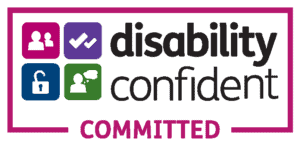Parliamentary Reporter Recruitment Opportunity
Candidate Information Booklet

Assembly Grade: 7
Salary: £32,122 – £33,232
Deadline: Completed application forms must be submitted no later than 12 noon (UK time) on 28 April 2023.
Please retain a copy of this booklet for your reference throughout the selection process (you can download a PDF version of this booklet using the link above).
Foreword
Thank you for your interest in the position of Parliamentary Reporter (AG7) at the Northern Ireland Assembly (the Assembly).
The Assembly operates in a dynamic political and legislative environment, and as a newly appointed Parliamentary Reporter, you will be provided with an excellent opportunity to make an important and valued contribution to Assembly business at Parliament Buildings.
Working at the Assembly offers a rewarding career. This is an exciting opportunity to join a high-profile organisation with a dedicated and inclusive team.
In turn, we offer a competitive salary, excellent pension provision and a range of other employee benefits listed on the Recruitment website.
Please read the information provided in the candidate information booklet carefully and if you are interested in this exciting post, I would encourage you to submit your application.
If you would like to find out more about the post before making an application, please contact Patrick Marsh at [email protected] or telephone 02890 521457.

Gareth McGrath Director of Parliamentary Services
About Us
The Assembly is at the heart of political and public life as the democratically elected parliament that represents the interests of Northern Ireland and its people.
Established as a key element of the Belfast (Good Friday) Agreement, the Assembly comprises 90 Members and has three main functions – making legislation, scrutinising the Executive and representing constituents.
In accordance with the Northern Ireland Act 1998, the staff, services and facilities which are needed to support the work of the Assembly are provided by the Assembly Commission, a corporate body comprising the Speaker and five Members of the Assembly. The day-to-day running of the Assembly is delegated to the Clerk/Chief Executive and the Senior Management Team.
The Assembly Commission therefore provides the infrastructure (including Parliament Buildings), facilities and staff to allow the Assembly and its Committees to meet and to encourage public awareness of, and engagement with, the parliamentary process. It also pays the salaries of Members and reimburses the expenses which enable them to undertake their duties both at the Assembly and in their constituency offices.
The Assembly Commission is a high-achieving and professional organisation providing impartial support to the Assembly and its Members. The Assembly Commission is independent of the Executive and the Northern Ireland Civil Service.
The Assembly Commission has approximately 370 staff and an annual revenue budget of £51m. Our organisational structure is illustrated on the Northern Ireland Assembly Recruitment website.
Contents
- The Person
- About the Role
- Core Responsibilities
- Essential Criteria
- Assembly Skills & Behaviours
- Equal Opportunities Statement
- Location
- Completing the form
- Recruitment and Selection Framework
- Stages of the Selection Process
- Guaranteed Interview Scheme
- Key Employee Benefits
- Terms and Conditions of Appointment
- Equality Monitoring
- Merit List
- Communication during the recruitment process
- Further Information
The Person
As a Parliamentary Reporter, you will be able to work effectively within a busy team, showing excellent attention to detail and first-rate English language skills. You will be able to communicate clearly and confidently. You will have an interest in the politics of and political system in Northern Ireland, as well as an appreciation of how and where the Northern Ireland Assembly sits within the wider political landscape.
About the Role
The Office of the Official Report (Hansard) is responsible for providing the official reports of sittings of the Assembly and meetings of Assembly Committees and a range of other reporting and editorial services. In addition, the office provides simultaneous interpretation and translation services in the Irish language.
Parliamentary Reporters produce and edit the official reports of all Assembly sittings, relevant Committee meetings and other miscellaneous proceedings. Reporters also review and correct material essential to the production and publication of the bound volumes of the official report.
View further information on The Official Report (Hansard).
Core Responsibilities
The main duties and responsibilities are:
- Attend meetings of the Assembly, its Committees and other miscellaneous proceedings to provide an accurate, chronological, clear log; monitor proceedings to identify each Member who speaks, including from a sedentary position; note opening words; note any remarks made off-microphone; search, check and verify references to, for example, proper names, places, technical terms and quotations; provide appropriate advice and assistance to source relevant information, inaudible words and phrases, acronyms and literary/scientific/technical references etc; and select accurate first and last words for the beginning and end of allocated pieces of work.
- Using a bespoke workflow system and digitally recorded sound, write and produce, within an agreed deadline (75 minutes, including the time taken for logging), an accurate and grammatically correct transcript of speech conforming to Hansard parliamentary reporting style and faithfully recording House procedure, as set out in relevant Hansard guidance. Plenary sittings often run late into the evening, and the same high standards, speed and accuracy are required throughout the session. The reporter must investigate the Order Paper, indicative timings, the Marshalled List and any other parliamentary papers as required to inform the creation of the edited transcript.
- Check spelling and punctuation, correct grammatical errors and, where necessary, edit and interpret material whilst having knowledge of the political context of the content.
- Research, using appropriate sources, references to proper names, place names and technical terminology, as well as historical, geographical and literary references, foreign words and phrases etc.
- Liaise with interpreters to report contributions in Irish.
- Verify, read and edit material produced by others to ensure that it is accurate and conforms to Hansard editorial and procedural guidelines.
- Evaluate, appraise, analyse and correct material for publication and ensure that it is produced and published within predetermined timescales.
- Undertake miscellaneous editorial, logging, reporting, proofreading, indexing and other services as required by Assistant Editors/Deputy Editors/Editor.
- Contact Members, witnesses etc to confirm words and gather any prepared materials.
- Respond to queries from Members, witnesses, public and staff and investigate reports and other information sources as required and, if necessary, in consultation with Assistant Editors, Deputy Editors or Editor.
- Manage their own performance and take the initiative to identify their personal development needs and how those needs can be met.
- Act as project team members and work with other teams in the organisation.
- Represent the Office of the Official Report (Hansard) and the Assembly at various meetings, conferences, seminars etc. For example, attend the British-Irish Parliamentary Assembly (BIPA) and coordinate logging rotas, relevant documentation and sound files to create a complete report of proceedings.
- Keep informed of current, political and parliamentary affairs, particularly with reference to Northern Ireland but also with reference to national and international affairs.
- Deputise for Assistant Editors and undertake their editorial, logging and representational roles as and when required.
- Perform the duties in line with the scheduling and timing of Assembly business, which can mean working, without notice, unsocial hours and being unable to take leave other than during recess periods, which are themselves subject to change.
- Comply with all the Assembly Commission’s staff policies and procedures including Dignity at Work and Equal Opportunities staff policies and procedures and all mandatory training requirements.
- Manage information and records in accordance with established policies and statutory requirements.
- Carry out other duties that the Assembly Commission reasonably requires.
Essential Criteria
Applicants for the post must possess, by the closing date for applications:
EITHER
1. GCSE/GCE ‘O’ level passes at grades A to C in four subjects, other than English language, plus a GCSE/GCE ‘O’ level pass at grade A or A* in English language. [Applications will be considered from candidates with relevant formal qualifications of an equivalent or higher standard to those stated] AND at least two years’ cumulative but not necessarily continuous experience in each of the areas detailed at (a) and (b) below.
OR
2. At least four years’ cumulative but not necessarily continuous experience in each of the areas detailed at (a) and (b) below.
a) Preparation, editing and publication of transcripts or exercising editorial judgement in the production of written material for publication or examination; and
b) The ability to interpret, research and provide a written report on complicated verbal and written information, arguments, reports etc.
Assembly Skills & Behaviours
The following Assembly Skills and Behaviours will be assessed during the selection process:
Building relationships and effective communication
…is creating and maintaining positive, professional and respectful internal and external working relationships through effective and appropriate communications.
Delivering a quality service
…is about providing a high-quality and efficient service to our customers. It is thinking ahead, managing resources effectively and delivering work on time and to a high standard. It is also using professional or technical expertise to enhance service delivery.
Parliamentary & Political Understanding
…is displaying an appropriate understanding of the wider political environment; what the Assembly does and how our role fits in; and the level of public scrutiny to which the actions and decisions of Assembly staff are exposed. It requires impartiality, integrity and political sensitivity.
Equal Opportunities Statement
The Assembly Commission is committed to equality of opportunity in employment and welcomes applications from all suitably qualified applicants irrespective of religious belief, political opinion, race, age, gender, disability, marital status, sexual orientation or people with dependents or without. All applications for employment will be considered on the basis of merit.
Location
The successful applicant will be based in Parliament Buildings, Belfast.
The role offers hybrid working whereby staff will have the opportunity to work from home for part of the week.
Completing the form
Only the information presented in the application form will be considered by the selection panel. CVs or other supplementary material will not be accepted in place of, or in addition to, completed application forms. Completed online forms must be submitted by 12 noon (UK time) on 28 April 2023.
Launch the application portal and complete the application form.
Application forms submitted after the closing time and date will not be accepted.
Recruitment and Selection Framework
There are five elements within the Recruitment and Selection Framework:
Experience – the knowledge or mastery of an activity or subject gained through involvement in or exposure to it.
Ability – the aptitude or potential to perform to the required standard.
Technical – the demonstration of specific professional skills, knowledge or qualifications.
Assembly Skills and Behaviours – the actions and activities that people do which result in effective performance in a job.
Strengths – the things we do regularly, do well and that motivate us.
All elements will be assessed for this role and the selection method(s) that will be used are detailed below.
Further information on the Recruitment and Selection Framework are included in the Guidance on Recruitment and Selection for Applicants.
Stages of the Selection Process
Eligibility Sift
The essential criteria reflect the experience and knowledge that an applicant must possess in order to be able to undertake the role. An eligibility sift will be carried out on the basis of the information contained in the essential criteria section of the application form. You must therefore demonstrate clearly in your form how, and to what extent, you meet the essential criteria for the post.
Job-related Skills Test
Applicants who pass the eligibility sift will be invited to complete a thorough job-related skills test, in person, which will cover the use and knowledge of the English language. Applicants who meet the minimum standard and who score highest in the test will be invited to interview.
Skills tests are planned for week commencing: 29 May 2023
Interview Stage
The interview will assess the information contained in this booklet.
Interviews are planned for week commencing: 26 June 2023
Further Interview Stage
The selection panel reserves the right to hold a further interview stage if deemed necessary.
Further information on the Recruitment and Selection process is available in the Recruitment and Selection Framework and Guidance on Recruitment and Selection for Applicants.
Guaranteed Interview Scheme
The Guaranteed Interview Scheme (GIS) supports applicants with disabilities or those with a long-term impairment or health condition that is expected to last for at least 12 months and which means that they cannot meet the shortlisting criteria. In these instances, provided that they have demonstrated in their application form that they meet the essential criteria for the role, the applicant will be invited to interview.
If you are applying under GIS, it is therefore important that you include all relevant information in your application form. You should refer to the Guidance on Recruitment and Selection for Applicants for more information.
In instances where an assessment or test forms part of the selection process and is not a shortlisting tool, all applicants must meet the minimum standard required for that assessment or test, including those applying under GIS.
For this competition, applicants applying under GIS and who meet the essential criteria will also need to complete a Job-related Skills Test. However they need only achieve the minimum pass mark in order to proceed to interview.
When considering applications made under GIS, the Human Resources Office reserves the right to request medical information from the applicant’s general practitioner (through the applicant and with their consent).
If you are disabled and consider that you require reasonable adjustments to enable you to participate in any part of the selection process, please indicate this on the application or contact us at [email protected].
You can get advice or assistance with making an application from your local Jobs and Benefits Office – contact details are available on NIDirect:
Find contact details for your local Jobs and Benefits Office.
Key Employee Benefits
We offer an annual leave allowance of 25 days, increasing by one day per year up to a maximum of 30 days. In addition, we offer 12 days of public and privilege holidays.
The Assembly Commission will enrol you into the Civil Service Pension Scheme from the first day of employment. Staff contribute between 4 and 9% of salary and the Assembly Commission contributes a further 28 to 35% of salary, depending on your rate of pay.
We also offer a range of non-salary benefits which include hybrid working; supportive family friendly policies; flexi-time; health and wellbeing initiatives including an Employee Assistance Programme; supported learning and development; Cycle to Work Scheme; Payroll Giving; and volunteering opportunities.
The successful applicant will be given suitable training, including formal specialised courses as necessary.
As an equal opportunities employer, we are happy to talk about the possibility of flexible working in this role with the successful applicant.
View further details of our employee benefits.
Terms and Conditions of Appointment
This is a permanent appointment. The successful candidate will be an employee of the Assembly Commission. All appointments are subject to the satisfactory completion of a six-month probationary period.
The standard working week is 37 hours, (excluding meal breaks). Working hours will be dictated by the mode of operation of the Assembly and may involve work into late evenings and on occasions, at weekends and on public holidays.
The taking of annual leave will be influenced by the Parliamentary timetable.
Equality Monitoring
Under Fair Employment legislation, we are required to monitor the community background and gender of those applying for jobs. You must therefore complete the equal opportunities monitoring section of the application form when applying for the post.
Merit List
The merit list of applicants deemed to be appointable will remain “live” for 18 months from the date it is signed and may be used to fill any further permanent or fixed term opportunities for the same post.
Communication during the recruitment process
The Assembly Recruitment Team will issue most communication electronically. You should therefore regularly check your email account to make sure you do not miss any important communication. Please note, sometimes the Recruitment Team emails are automatically filtered as spam by email providers.
Further Information
If you require more information on the recruitment process, please contact the Assembly Recruitment Team on 02890 521741 or [email protected]
Further information about the Assembly can be obtained on the Northern Ireland Assembly website.
The Candidate Information Booklet does not constitute any term or condition of employment.


